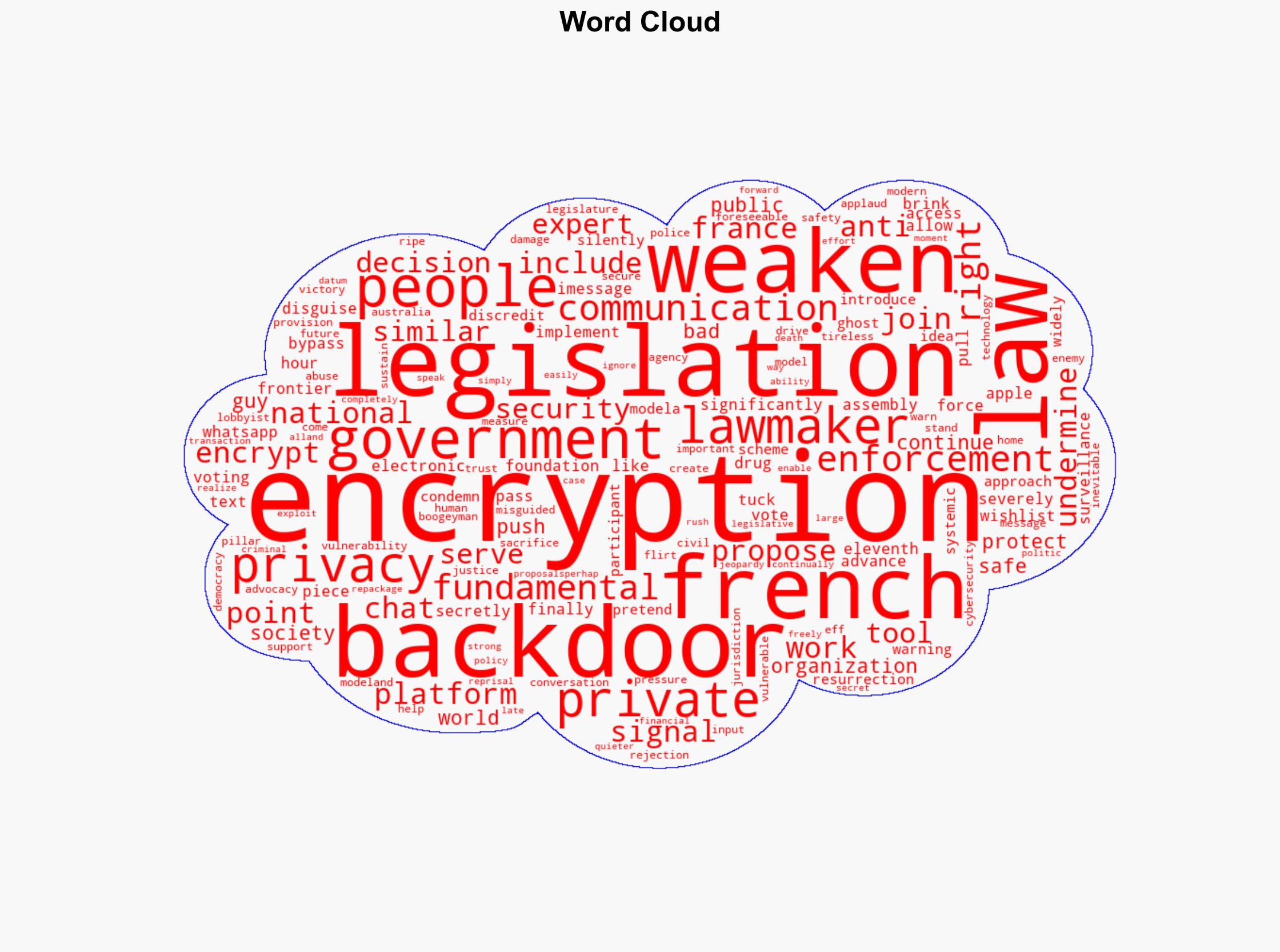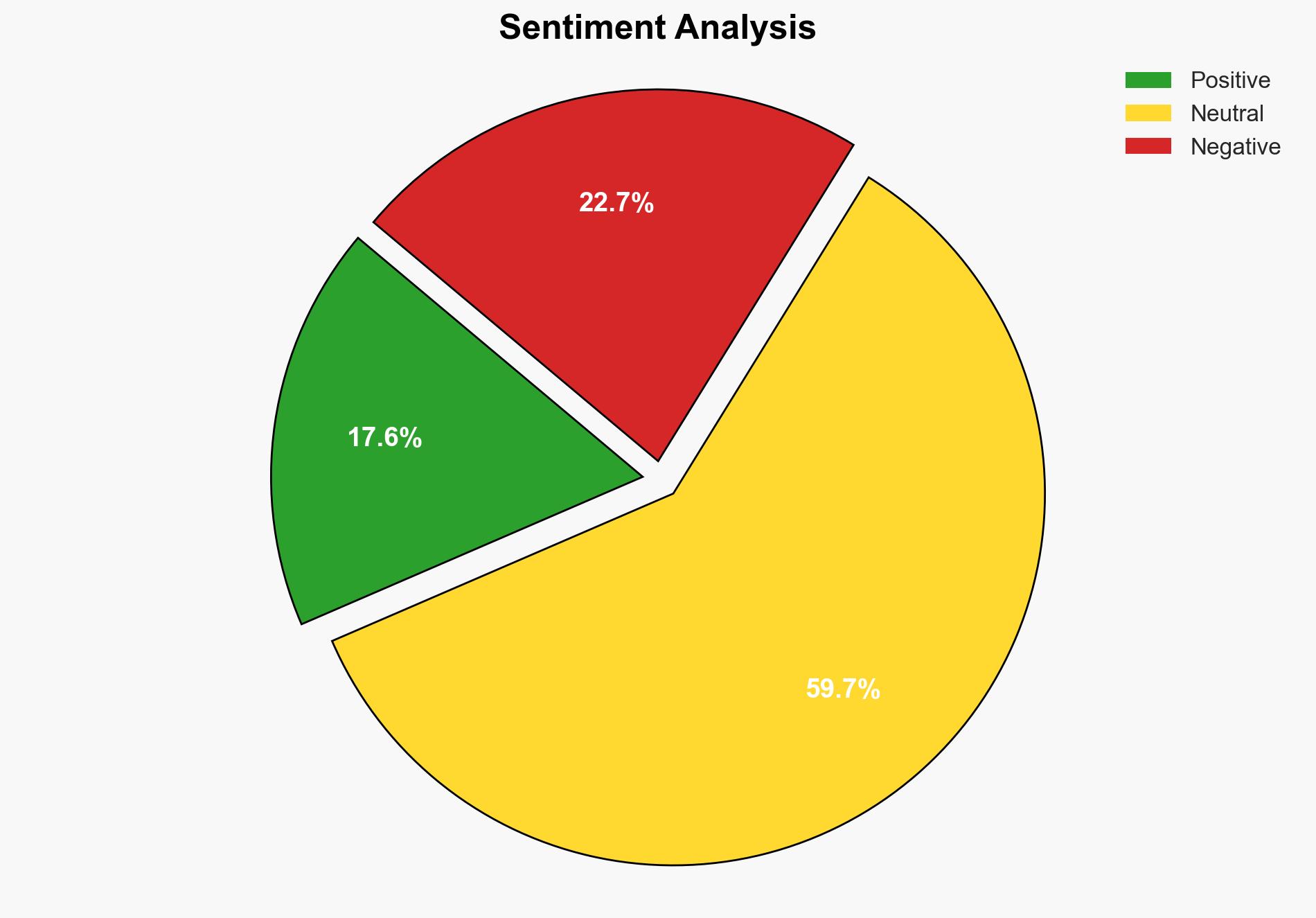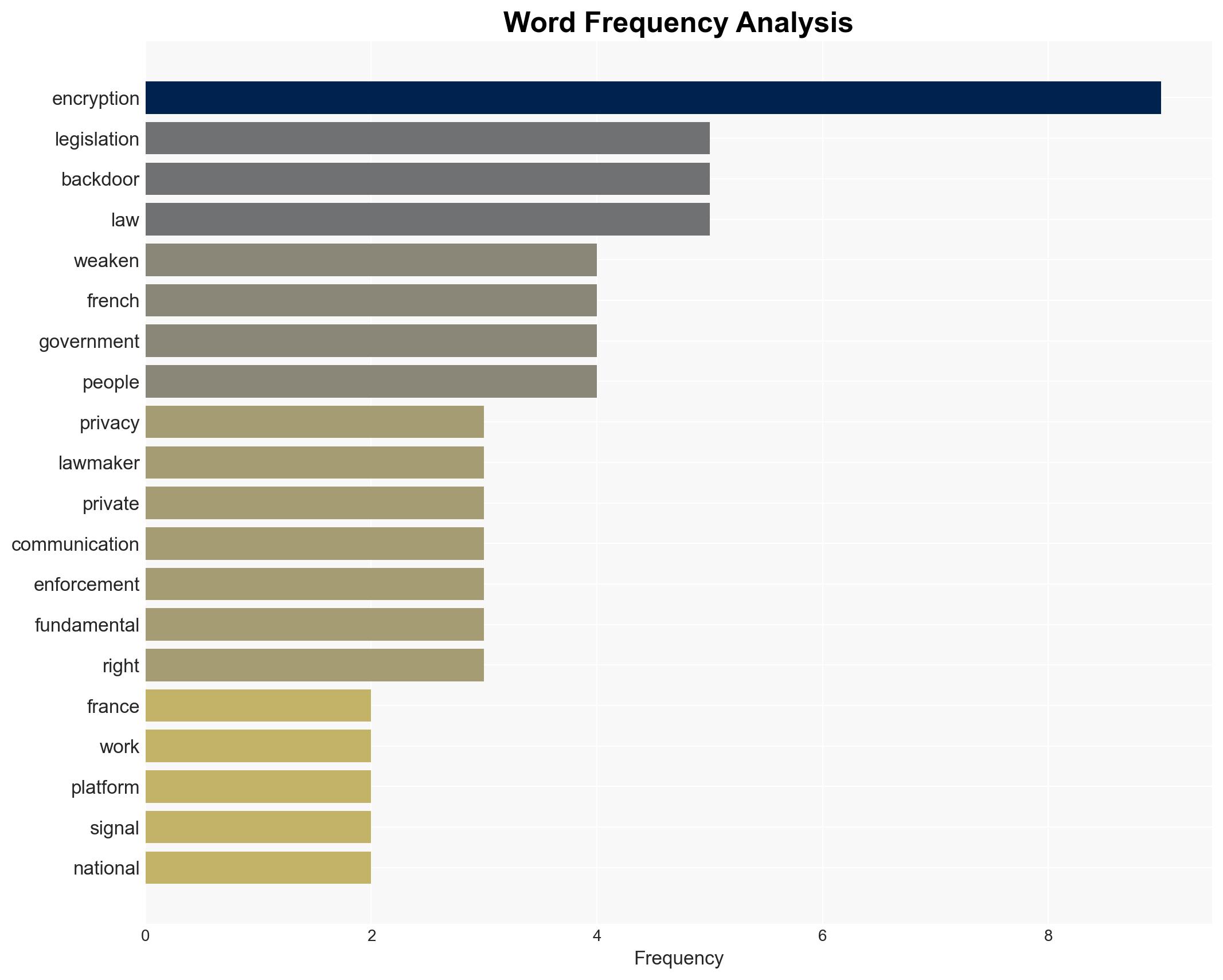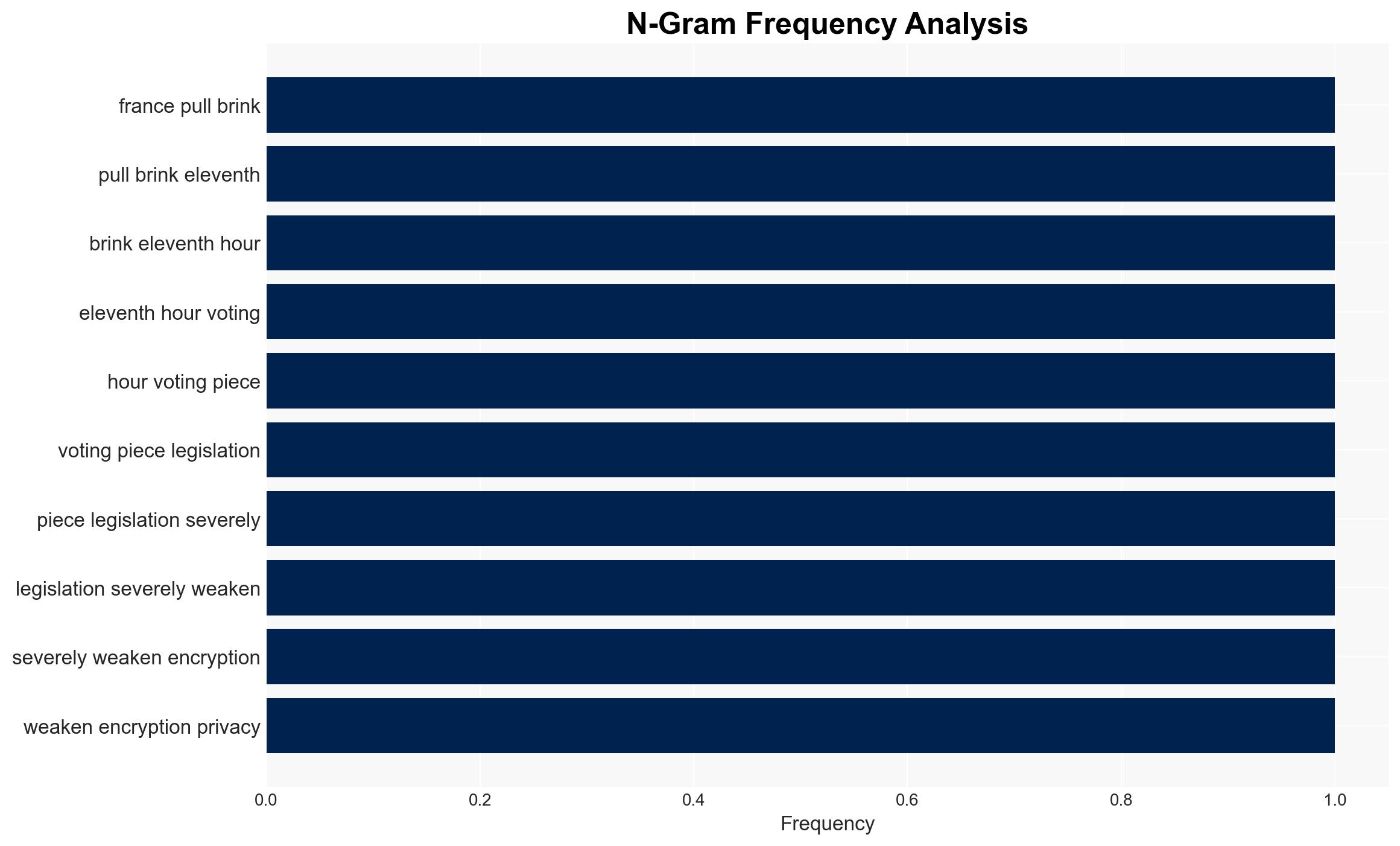France Rejects Anti-Encryption Legislation – WebProNews
Published on: 2025-04-05
Intelligence Report: France Rejects Anti-Encryption Legislation – WebProNews
1. BLUF (Bottom Line Up Front)
France has decisively rejected proposed legislation that would have significantly weakened encryption by mandating backdoor access for government surveillance. This decision highlights France’s commitment to privacy and secure communication, setting a precedent for other jurisdictions. The rejection serves as a critical signal against similar legislative efforts worldwide, emphasizing the importance of encryption in safeguarding fundamental rights and cybersecurity.
2. Detailed Analysis
The following structured analytic techniques have been applied for this analysis:
General Analysis
The proposed legislation aimed to compel platforms like Signal, WhatsApp, and Apple iMessage to implement backdoors, allowing government access to encrypted communications. The Electronic Frontier Foundation and security experts condemned this approach, warning it would introduce systemic vulnerabilities. The legislation was disguised as anti-drug policy but was ultimately recognized as a threat to privacy and security. France’s rejection is a victory for privacy advocates and underscores the importance of strong encryption as a tool for justice and human rights.
3. Implications and Strategic Risks
The rejection of the anti-encryption legislation in France has several implications:
- National Security: While the decision protects privacy, it may complicate law enforcement efforts to monitor criminal activities.
- Regional Stability: France’s stance may influence neighboring countries to adopt similar positions, impacting regional legislative trends.
- Economic Interests: The decision supports the tech industry by maintaining trust in secure communication platforms, which is vital for economic stability and growth.
4. Recommendations and Outlook
Recommendations:
- Encourage international dialogue on balancing privacy and security to develop mutually beneficial policies.
- Invest in advanced cybersecurity measures to enhance law enforcement capabilities without compromising encryption.
- Support public awareness campaigns on the importance of encryption for personal and national security.
Outlook:
Best-case scenario: France’s decision inspires global adherence to strong encryption standards, enhancing privacy and security worldwide.
Worst-case scenario: Continued pressure from law enforcement agencies leads to fragmented policies, weakening global encryption standards.
Most likely outcome: France’s stance strengthens the global encryption debate, leading to more nuanced policies that balance privacy and security.
5. Key Individuals and Entities
The report mentions significant individuals and organizations such as Signal, WhatsApp, Apple iMessage, and the Electronic Frontier Foundation. These entities play crucial roles in the ongoing discourse on encryption and privacy.





